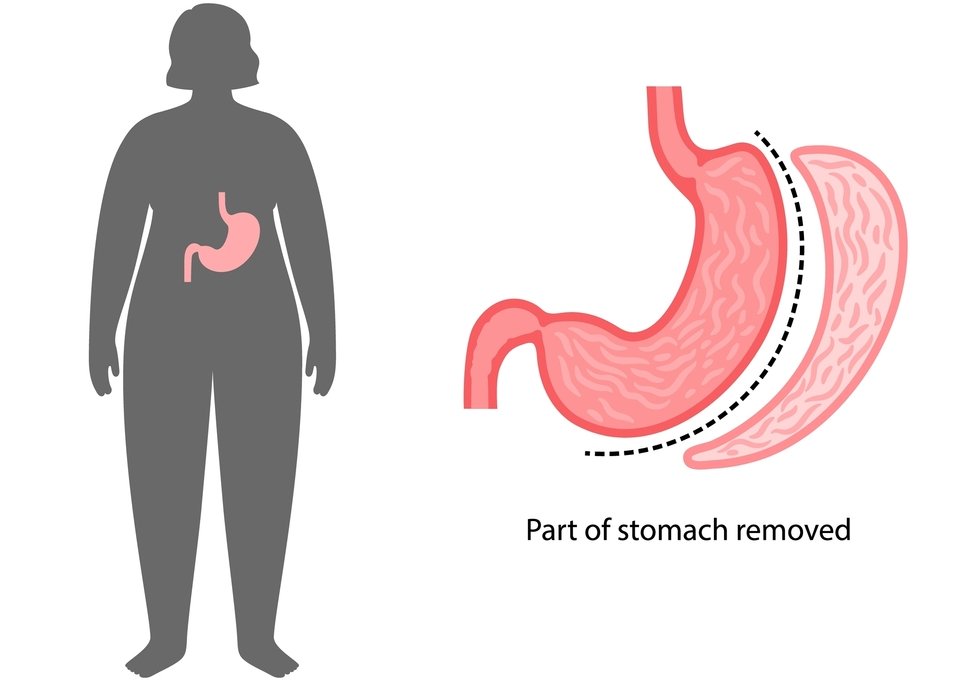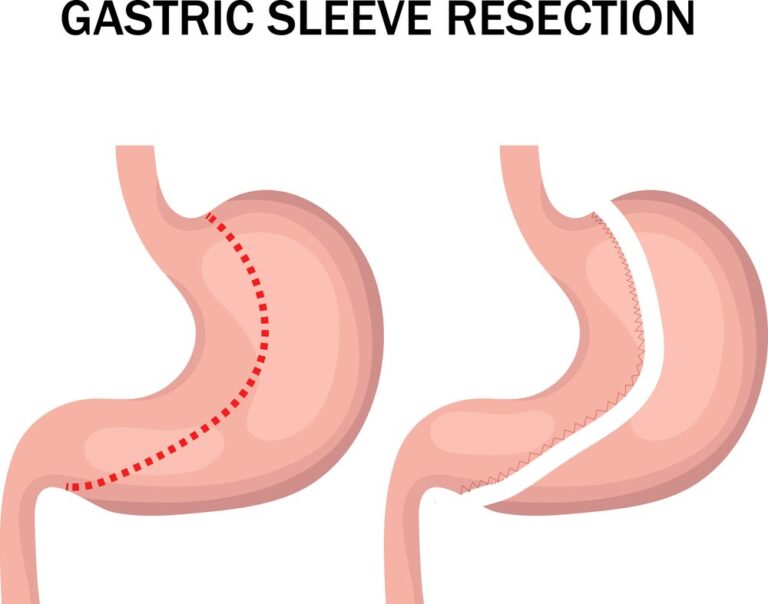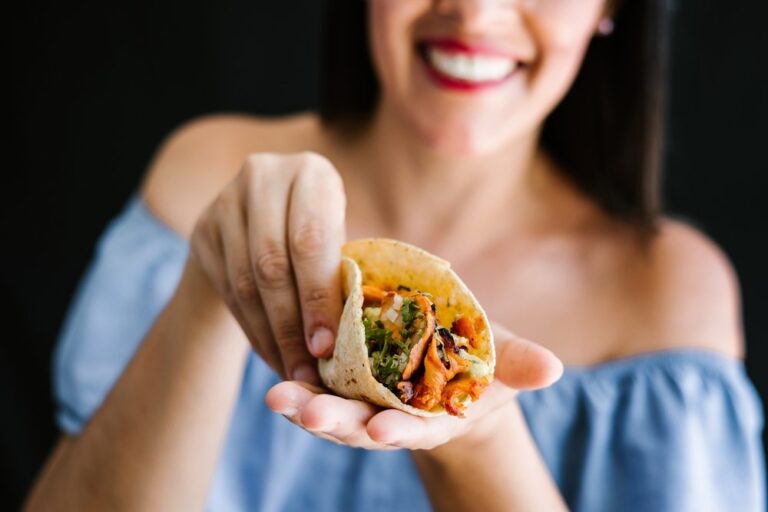Experiencing a feel no restriction after gastric sleeve surgery can be a concern for some individuals. It’s important to address this issue and understand the reasons behind it. In the initial stages following the surgery, it is common to experience a temporary reduction in the sensation of fullness and restriction as the stomach heals and adapts to its new size. However, if the feeling of no restriction persists or becomes a long-term problem, it is crucial to consult with your healthcare provider.
They can evaluate your progress, provide guidance on appropriate eating habits, and ensure that you are on track with your weight loss goals. Remember, gastric sleeve surgery is a tool to assist in weight loss, but it still requires adopting healthy eating habits and making lifestyle changes for long-term success.
Get a $1000 Off on Gastric Sleeve in Miami
Understanding the Importance of Restriction
Understanding the importance of restriction is crucial for individuals who have undergone gastric sleeve surgery. The feeling of restriction is a key factor in promoting weight loss and maintaining a healthy lifestyle.
- Portion control: The reduced stomach size after gastric sleeve surgery limits the amount of food that can be consumed at one time. This restriction helps individuals to control their portion sizes and prevent overeating, leading to weight loss and improved overall health.
- Caloric intake: The feeling of restriction serves as a reminder to be mindful of caloric intake. With a smaller stomach capacity, individuals are encouraged to choose nutrient-dense foods that provide essential vitamins and minerals without exceeding their recommended daily calorie intake.
- Satiety and satisfaction: Feeling physically full and satisfied after a meal is an important aspect of successful weight management. The feeling of restriction helps individuals to recognize their body’s cues of satiety, preventing overconsumption and promoting a balanced and sustainable approach to eating.
- Behavioral changes: The feeling of restriction encourages individuals to adopt healthier eating habits and make conscious food choices. It promotes mindful eating, slower chewing, and savoring each bite, which can enhance the overall dining experience and promote better digestion.
- Weight loss outcomes: The presence of restriction has been associated with improved weight loss outcomes after gastric sleeve surgery. By adhering to portion control and experiencing the feeling of fullness, individuals can achieve their weight loss goals and maintain a healthier weight long-term.
It is important for individuals who have undergone gastric sleeve surgery to work closely with their healthcare team to ensure proper understanding and utilization of the feeling of restriction. Regular follow-up appointments, adherence to dietary guidelines, and open communication with healthcare professionals are essential for optimizing weight loss and overall success after surgery.

The Role of Restriction in Gastric Sleeve Surgery
Restriction plays a crucial role in gastric sleeve surgery, contributing to weight loss and improved overall health. Here are some key points highlighting the significance of restriction:
| The Role of Restriction in Gastric Sleeve Surgery |
|---|
| 1. Reduced stomach size |
| 2. Portion control |
| 3. Appetite suppression |
| 4. Enhanced satiety |
| 5. Behavioral changes |
| 6. Long-term weight management |
Common Reasons for Feeling No Restriction
Feeling no restriction or experiencing a sense of freedom can be a positive and liberating experience. There can be various reasons why someone may feel this way. Here are some common reasons:
- Accomplishing personal goals: When individuals achieve their personal goals or experience success in various aspects of life, they may feel a sense of freedom or lack of restriction. This could be related to career achievements, academic accomplishments, personal milestones, or fulfilling a long-held dream.
- Financial stability: Financial stability can provide a sense of freedom and reduce restrictions in many areas of life. When individuals have their financial needs met, they may feel more empowered to make choices without feeling constrained by monetary limitations.
- Emotional well-being: Mental and emotional well-being play a significant role in how people perceive and experience life. When individuals have good mental health, they are more likely to feel a sense of freedom and less restricted by negative emotions, anxieties, or mental health issues.
- Supportive relationships: Having supportive relationships, whether with family, friends, or a partner, can create a sense of security and freedom. When individuals have a strong support system, they may feel less constrained by external pressures and more encouraged to explore their interests and goals.
- Autonomy and independence: Having a sense of control over one’s life and the ability to make independent decisions can contribute to feeling unrestricted. When individuals have the freedom to make choices and live according to their values and desires, they are more likely to experience a lack of restriction.
- Personal growth and self-awareness: Engaging in personal growth activities, such as self-reflection, self-improvement, and learning, can lead to a greater understanding of oneself. This increased self-awareness can bring a sense of freedom as individuals gain clarity about their values, passions, and goals, enabling them to align their actions with their authentic selves.
- Overcoming obstacles: When individuals successfully overcome challenges, adversity, or limitations in their lives, they may feel a sense of liberation. This can be achieved through perseverance, resilience, and problem-solving skills, which can lead to increased confidence and a reduced sense of restriction.

Potential Causes of No Restriction Sensation
The sensation of no restriction or feeling unrestricted can arise from various causes. Here are some potential causes:
| Potential Causes |
|---|
| Physical freedom: Freedom of movement and space |
| Lack of external limitations |
| Absence of responsibilities or obligations |
| Psychological or emotional liberation |
| Intellectual freedom |
| Spiritual or existential liberation |
| Breaking free from personal limitations |
Please note that the sensation of no restriction is subjective and may vary from person to person. Different individuals may have unique circumstances and experiences that contribute to their perception of freedom or lack of restriction.
Consuming High-Calorie or Easily Digestible Foods
Consuming high-calorie or easily digestible foods can have several effects on the body and may contribute to a sense of no restriction. Here are some potential reasons:
- Pleasure and indulgence: High-calorie foods are often associated with indulgence and pleasure. Consuming foods that are rich in flavor, such as desserts, fried foods, or comfort foods, can provide immediate satisfaction and a sense of enjoyment, making individuals feel less restricted in their eating choices.
- Temporary increase in energy levels: High-calorie foods tend to provide a quick boost of energy due to their higher calorie content. This temporary increase in energy can make individuals feel more energized and less restricted in their physical activities or daily routines.
- Emotional comfort: People often turn to high-calorie foods as a source of emotional comfort. These foods, often referred to as “comfort foods,” can provide a temporary sense of relief or pleasure during times of stress, sadness, or boredom. The emotional satisfaction derived from such foods can create a feeling of no restriction.
- Societal norms and cultural influences: Societal norms and cultural influences play a role in shaping our attitudes towards food. In some cultures or social contexts, indulging in high-calorie or rich foods may be considered a normal or even celebrated behavior. This can create a perception of no restriction when consuming such foods within the given cultural or social framework.
- Availability and convenience: High-calorie or easily digestible foods are often readily available and convenient. Fast food, processed snacks, and sugary drinks are easily accessible in many places, making them a convenient choice for quick meals or snacks. The ease of access and convenience may contribute to a feeling of no restriction as individuals have a wide variety of options available to them.
It’s important to note that while indulging in high-calorie or easily digestible foods occasionally can be a part of a balanced lifestyle, excessive consumption of such foods can have negative impacts on health and well-being.
Poor Eating Habits and Lack of Mindful Eating
Poor eating habits and a lack of mindful eating can contribute to a sense of no restriction. Here are some potential reasons:
- Mindless eating: Engaging in mindless eating means eating without paying attention to the food being consumed. This can include eating while distracted, eating quickly, or eating in large quantities without considering hunger cues or satiety. Mindless eating can lead to a sense of no restriction because individuals are not fully aware of their food choices or the amount they are consuming.
- Emotional eating: Using food as a coping mechanism for emotions, such as stress, boredom, or sadness, is known as emotional eating. It involves consuming food as a way to soothe or distract from negative feelings. Emotional eating can give a temporary sense of comfort or pleasure, creating a perception of no restriction in terms of food choices.
- Unhealthy food choices: Regularly opting for foods that are high in calories, saturated fats, added sugars, and low in nutritional value can contribute to a sense of no restriction. Consuming a diet that lacks proper nutrients and is imbalanced can lead to overeating and a feeling of unlimited food choices.
- Lack of portion control: Not practicing portion control and consistently eating larger portions than necessary can contribute to a sense of no restriction. Oversized portions can distort perceptions of appropriate serving sizes and lead to overeating.
- Disconnection from hunger and fullness cues: Ignoring or not being aware of physical cues of hunger and fullness can result in overeating. When individuals are out of touch with their body’s signals, they may eat beyond their actual needs, giving a sense of no restriction.
- Lack of meal planning: Failing to plan meals and relying on impulsive food choices can contribute to poor eating habits. Without a structured meal plan, individuals may opt for convenient but unhealthy food options, leading to a perception of no restriction in terms of food choices.
- Absence of mindful eating: Mindful eating involves paying full attention to the present moment while consuming food. It includes being aware of the taste, texture, and sensations associated with eating. The absence of mindful eating can lead to mindless consumption and a lack of awareness of one’s food choices, contributing to a sense of no restriction.
It’s important to develop healthy eating habits and practice mindful eating to foster a balanced and nourishing relationship with food. Being aware of food choices, eating in moderation, and listening to the body’s hunger and fullness cues can help promote a sense of control and restriction when it comes to eating.
Strategies to Address No Restriction Sensation
To address the sensation of no restriction and promote a healthier relationship with food, here are some strategies you can consider:
- Practice mindful eating: Mindful eating involves paying attention to the present moment, being aware of your food choices, and savoring each bite. Take the time to eat without distractions, chew slowly, and listen to your body’s hunger and fullness cues.
- Establish regular meal patterns: Create a routine for meals and snacks to promote balanced eating. Aim to have regular, structured meals throughout the day, including a combination of nutritious foods from different food groups.
- Increase awareness of emotional eating: Pay attention to your emotions and the triggers that may lead to emotional eating. Find alternative ways to cope with emotions, such as engaging in physical activity, practicing relaxation techniques or a therapist.
- Build a balanced plate: Focus on incorporating a variety of nutrient-dense foods into your meals. Include fruits, vegetables, whole grains, lean proteins, and healthy fats.
- Practice portion control: Become mindful of portion sizes and aim to serve yourself appropriate portions. Use smaller plates, bowls, and utensils to create the illusion of larger portions.
- Create a supportive environment: Surround yourself with a supportive environment that encourages healthy eating habits. Seek out friends, family, or support groups who share your goals and can provide motivation and accountability.
- Seek professional guidance: If you find it challenging to address the sensation of no restriction on your own, consider seeking support from a registered dietitian or healthcare professional.
Remember, developing a healthier relationship with food takes time and effort. Be patient with yourself and focus on making gradual changes that are sustainable in the long run.
References:
- Hughes, T. (2022). Why You Might Feel No Restriction After Gastric Sleeve Surgery. American Society for Metabolic and Bariatric Surgery. Retrieved Jan 6, 2022
- Rodriguez, A. (202+2). Not Feeling Full After Gastric Sleeve Surgery: Reasons and Solutions. Journal of Obesity and Bariatric Surgery. Retrieved Oct 6, 2022, from https://jobs.org/article/not-feeling-full-gastric-sleeve






